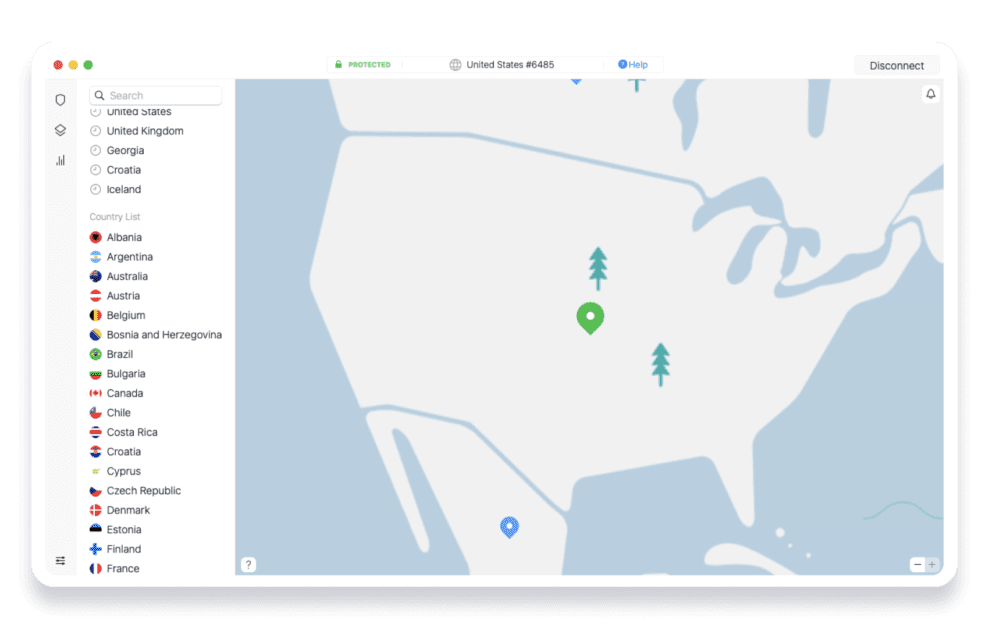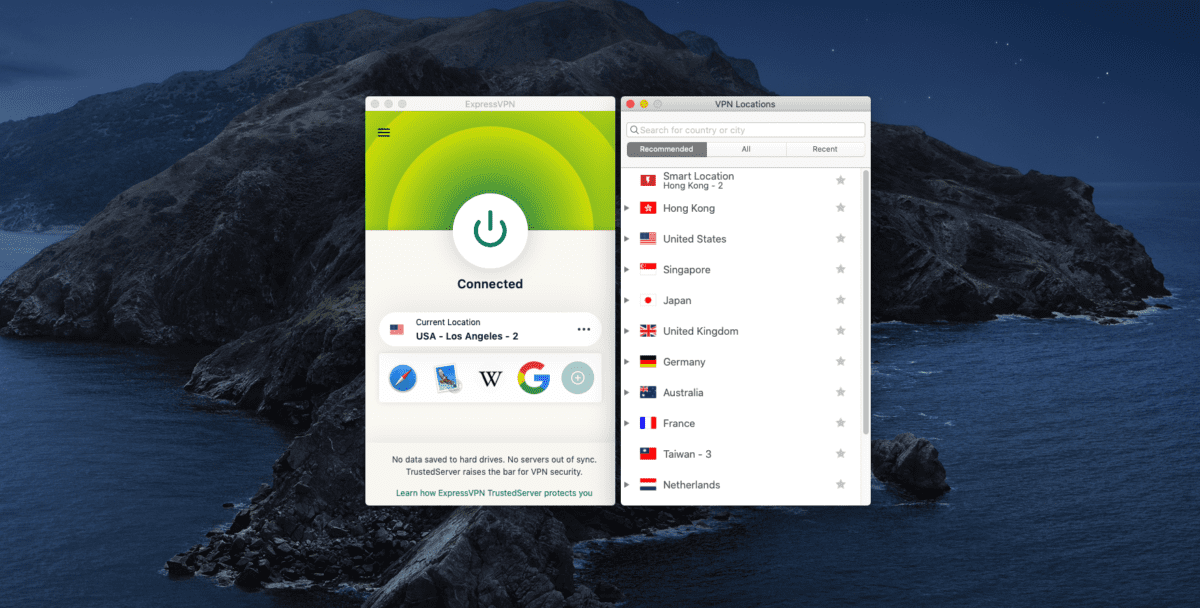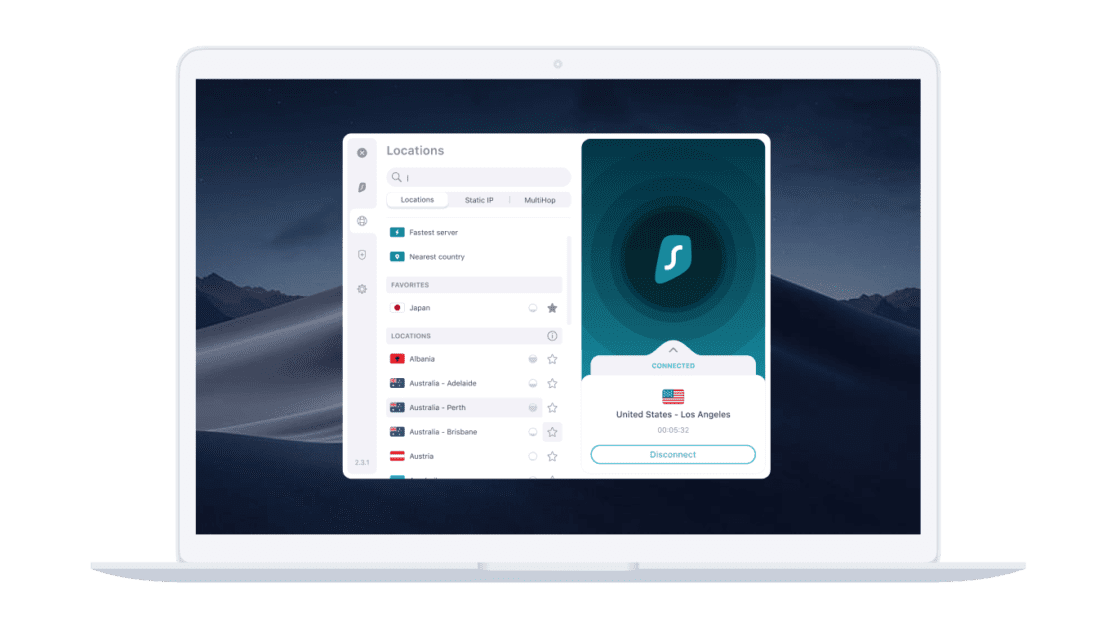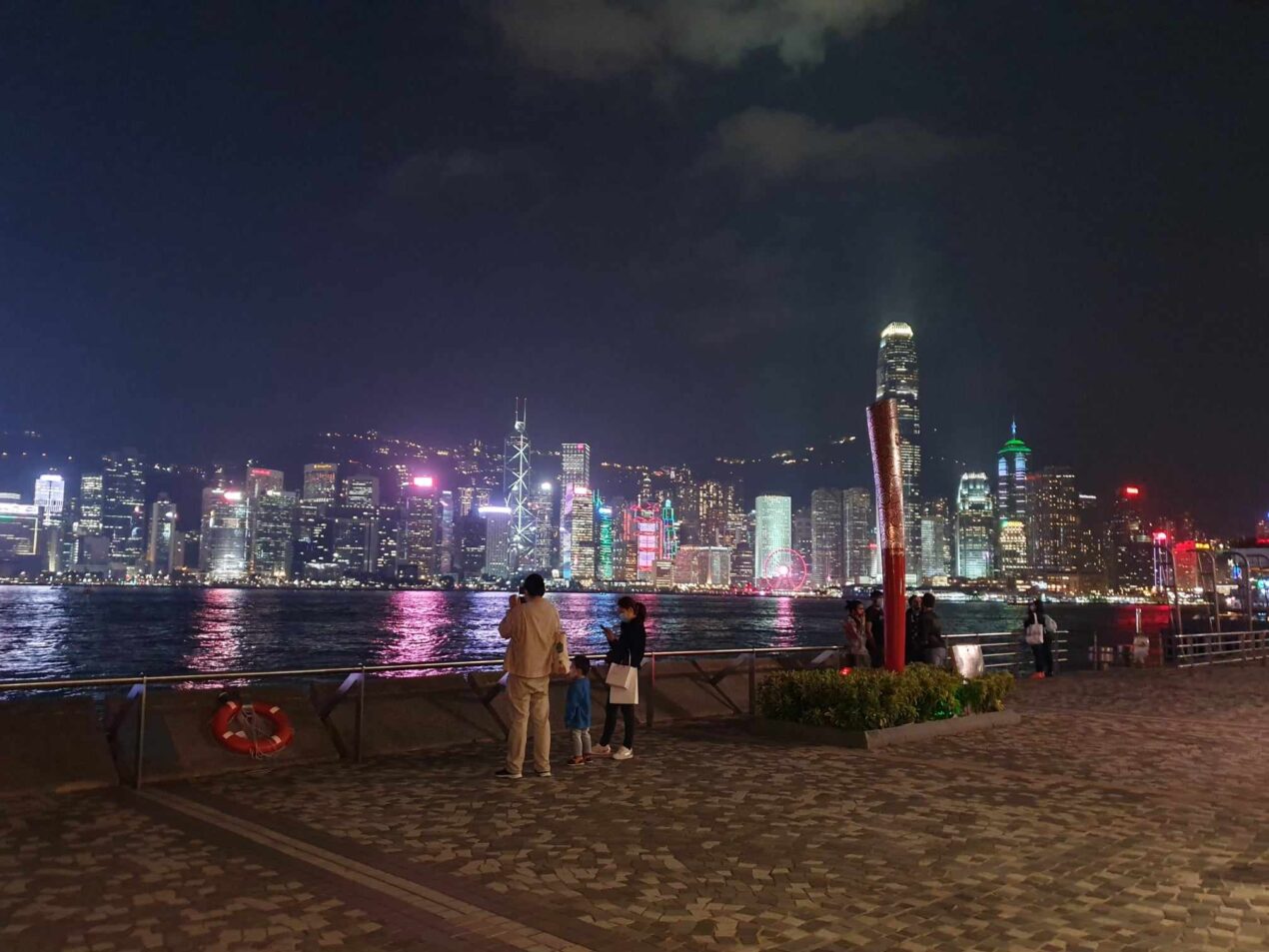3 of the Best VPNs For Hong Kong to Enjoy Uncensored, Uninterrupted Internet Use
Hong Kong is changing. For better or worse, there’s a palpable shift in Hong Kong’s political, social, and economic landscape that stands to carry significant repercussions (or benefits) for its residents – both local and foreign. One of the most pressing questions that seems to be echoed amongst both travelers and citizens of Hong Kong is, “At what point do I need to worry about internet censorship?”.
Well, I’d argue now – and that answer isn’t even fully driven by the changing political landscape. Virtual proxy networks, aka VPNs, aren’t just an invaluable tool for protecting yourself against unfettered government surveillance and censorship. They are also practical tools that can make everyday life much easier (and electronically safer).
Whether it’s accessing geo-blocked television shows on your favorite streaming service (the American Netflix catalog in Hong Kong), preventing hackers from intercepting sensitive financial data on poorly secured public networks (ex. cafe), using dedicated work servers while on business trips, or otherwise obfuscating your internet browsing activity, VPNs aren’t just an added value tool in today’s digital world, they are a necessity. I’m currently using one while I write this from a Starbucks in Wan Chai as I just wired some “dollhairs” to another account for my upcoming Europe trip.
Here are 3 of the best VPNs for Hong Kong so that you can enjoy uncensored, uninterrupted internet use (or watch whatever trash bag television show you live for) – all three of which I’ve personally used during my six-year-plus tenure in Hong Kong.
Benefits of Using a VPN in Hong Kong
As I touched on in the intro, VPNs confer countless benefits (and protections) on users and are what I consider to be an absolute essential in today’s predatory digital landscape.
This is not to fearmonger at all. Rather, acknowledge a reality that can actually be defended against like Uma Thurman (aka ‘The Bride’) vs. Gogo Yubari in Kill Bill: Volume 1 (one of the greatest movies of our time).
Let’s dive into a few of the major benefits in a little more detail.
Bypassing Geo-Blocked & Restricted Content
Look, if you’re reading this, I’d heavily bet that the biggest reason you need a VPN is to access your favorite movies and TV series from abroad. It’s no surprise that different streaming platforms release different shows and movies to different audiences and/or geographical regions at different times.
I personally use my VPN to watch Netflix’s catalog of American cinema and access Hulu (an American streaming service that is only available in the U.S.). Simply set the destination of your VPN to whichever geographical region you want and as far as the content provider knows (ex. Netflix, Hulu, etc…), you’re actually located there.
As part of my work also involves researching state-specific statutes and case law, setting my VPN in a U.S. location is necessary to access these, as a surprising amount of government websites block user access from specific countries (which I imagine is primarily due to spam and phishing).
Finally, you’re going to need a VPN if you want to access and watch TikTok.
Pale Ale Travel Tip: Another added benefit of using a VPN in Hong Kong is being able to access ChatGPT without any issues. Make sure to check out my complete guide explaining how to use ChatGPT in Hong Kong.
Protecting Your Personal Information When Surfing the Web
If you’re like me and grew up in the 90s and early 2000s, you may have inevitably come across the popular sketch comedy series ‘Chappelle’s Show’. There’s one episode where Dave Chappelle is walking through the internet as if it were actual ‘real life’, which is essentially him in a mini-mall being accosted by nefarious, spammy, and salacious actors, all representing different facets of the internet.
Eventually, he clocks one of them in the face and blurts out ‘Spam blocker!’. To me, this is what using a VPN in public protects against – malicious and spammy online actors that use your IP address, fake WiFi hotspots, session hijacking, or ads to intercept or acquire your personal information and sensitive data.
Securing Your Online Financial Transactions
This is definitely a subset of the above point but VPNs act as effective barriers to man-in-the-middle and “sniffing” attacks by rerouting your internet traffic through their servers – ultimately rendering your online transactions indecipherable and unreachable.
Simply put, when using a VPN, a malicious actor is unable to ascertain the original point your data came from.
Safeguarding Against Government Surveillance & National Security Laws
All I will expand on about this benefit is that after writing my first article on using VPNs in Hong Kong, I took a slightly critical tone of Hong Kong’s evolving political landscape, to which my mother frantically messaged me saying that I should remove such criticism about the government. I think that says all you need to know about where Hong Kong is politically and censorship-wise.
Pale Ale Travel Tip: If you’re looking for more information on why I think using a VPN in Hong Kong is a good idea, make sure to check out my article ‘Do I Need a VPN in Hong Kong?’.
3 Hong Kong VPNs That I Can Personally Vouch For
The goal is to provide a little information on three VPN providers in Hong Kong that cater to every type of budget. I first began using a free VPN as a student when I first moved to Beijing so that I could watch YouTube and tested countless others over the years – ultimately settling on a VPN that I have been using for the past four-plus years now (discussed below).
I’ll be honest with you, I’m not going to sit here and try and list out every single ‘positive’ or ‘negative’ VPN feature there is or pretend like I understand exactly what encryption protocol they use (hint: I have zero understanding of this). What I can do is explain what I personally look for and value when choosing a reliable and long-term VPN provider.
The key things I look for in a reliable and effective VPN provider include:
- Speed & Load Time: A simple fact of the matter is that using a VPN will slow down your internet connection due to its use of bandwidth for encryption. However, with the right VPN, that should be almost completely unnoticeable. To prevent Google Docs from going offline or whatever trashy television show I’m watching from buffering every other second, I look for a VPN provider with servers in Hong Kong (or close) – and a lot of them (as too many users connected at once can affect the speed).
- Device Compatibility: I’m unfortunately someone who uses far too many electronic devices, including my mobile phone, laptop, and tablet. To ensure that all device browsing is protected, it’s a requisite that any VPN provider I use allows me to fire up my VPN on multiple devices.
- Kill Switch: VPN connectivity can sometimes drop, exposing your internet connection to malicious actors. A kill switch immediately blocks internet access or terminates specific apps so that this temporary moment of weakness isn’t exploited.
- Data Log Retention Policy: A ‘no-logs’ data retention policy simply means that a VPN provider doesn’t store your personal information, such as your browsing activity, IP address, or DNS queries. A no-logs policy is only as good as it is true, so it’s also important to make sure that it has been audited by an independent third party.
And finally, as the Wu-Tang Clan says, “Cash rules everything around me, C.R.E.A.M. get the money, dollar dollar bill, y’all.” Price is also an important factor. Frankly, I can be a bit frivolous with money and spending on coffee when I’m oot and aboot (as the Canadians say), so it comes down to cutting out one or two coffees per month (no matter the VPN).
IMPORTANT Note: Keep in mind that all three VPN providers below have servers located in Hong Kong and a kill switch. All three also have 30-day money-back guarantees, so it doesn’t hurt to give one a try.
NordVPN – The Most Well-Rounded

In my opinion, NordVPN is the most well-rounded VPN on this list thanks to its affordable price point, total number of global servers (6,300), speed (download averages just under 420 Mbps in the U.S.), and bonus features like dark web monitoring, SmartPlay (a feature that switches servers when your access is blocked), and double VPN encryption. It sports compatibility for 10 simultaneous devices and frankly, some of the best customer service I’ve encountered with any digital product (both live chat and email).
And, if you want extra assurances about its no-logs policy claim, it has been thoroughly audited by PricewaterhouseCoopers (PwC) AG Switzerland and Deloitte (the last audit being earlier this year in 2024).
One point of note in my usage of NordVPN is that I’ve rarely run into any hiccups with speed, even when connecting to servers a considerable distance away from my actual location in Hong Kong. This was especially useful when I was heavily into Hulu shows. It was also the main VPN I was using while playing on invite-only poker apps and clubs (while you will get banned on mainstream poker sites, it’s not really an issue with private clubs/apps).
Finally, if my personal business ever becomes successful enough that I need to purchase a team VPN, Nord offers ‘NordLayer’ – a cybersecurity hardware tool that establishes a secure remote connection between networks and only allows authorized users and specific devices to access the company network, resources, and more.
Pale Ale Travel Tip: If you are traveling or moving to the Fragrant Harbor, make sure to check out my post breaking down the pros and cons of living in Hong Kong.
ExpressVPN – The Rock

ExpressVPN is my go-to VPN in Hong Kong. I’ve been consistently using it as my primary VPN in the city for over 4 years now. And, its 3,000+ servers across 105 countries have served me incredibly well. I was first introduced to ExpressVPN because my best friend’s wife was working there and had great things to say about the product and company and because my father had been using ExpressVPN as his go-to VPN since his move back to Hong Kong.
To be honest, on paper, NordVPN edges out ExpressVPN in every single way. However, I’ve had just such a great experience with ExpressVPN and rarely run into any major issues since I switched over from Nord. Maybe I’m being a bit stubborn by refusing to go back. Their UI is also my favorite and I’ve gotten too used to staring at the red and white icon in my computer menu bar.
I did note in my post ‘Do I Need a VPN in Hong Kong?’ that I did, at one point, get dropped occasionally when connecting from multiple devices at the same time. Since writing that post, I haven’t encountered said issue, and speed and connectivity have both been excellent. I also haven’t had any buffering or issues with downloading files or streaming (you may already know that I watch a lot of chess streams on Twitch).
While ExpressVPN isn’t exactly the cheapest VPN on the market, it only works out to a cup of coffee or two per month. Which, if you also happen to blow through 2 to 3 coffees per day, like yours truly, then this should be no problem to pony up. I do fully get not being completely sold due to the higher price though – however, they do have a 30-day money-back guarantee (so does Nord and Surfshark).
One note that I would make about ExpressVPN and the use of some streaming services is that, for example, if you want to access the U.S. or U.K. catalog of movies and television shows, you may have to play around a bit by setting your VPN to several different locations. When using Hulu, a popular American streaming service, ExpressVPN doesn’t typically bypass Hulu’s proxy and VPN detectors when my location is set to Los Angeles, so I generally set it to Denver or Phoenix.
Pale Ale Travel Note: I think I’m the most critical of ExpressVPN on this list as it’s the VPN in Hong Kong that I’ve used for the longest period.
Surfshark – The Budget

At first, due to Surfshark being pushed by literally every YouTuber or influencer out there, I was a bit put off. However, this is by far the most economical and anonymized VPN on the list. Users can pay for their subscription with crypto (to cut down on being identified), enjoy unlimited device use, and remain confident in its privacy and data protection mission statement (thanks to being based in the Netherlands – a country touted for strong privacy and data protection laws).
While Surfshark boasts over 3200 servers across 100 countries, I’ve still run into connectivity issues when using it, especially on my Android phone and tablet (both Samsung). It’s a bit annoying having to constantly reconnect, especially when streaming on my phone.
It’s also worth noting that Surfshark was merged with Nord in 2022. However, Nord has nearly double the servers and a dark web monitoring tool to prevent the use of account information that was leaked on the dark web, which slightly edges things out for me. And, while I’m all about being able to use as many devices as possible, Nord and ExpressVPN provide more than enough simultaneous connections than I actually need.
If you are budget-conscious and are okay with slightly sacrificing speed and connectivity, while otherwise enjoying strong encryption and unlimited device usage (great for a family and/or roommates), then Surfshark would be my choice.
Pale Ale Travel Tip: To me, privacy and crypto go hand in hand. If you live in Hong Kong or are traveling through and want to know how to buy or sell Bitcoin in the city, make sure to check out my posts breaking down how to buy Bitcoin in Hong Kong and how to buy Ethereum in Hong Kong.
VPN Usage Guidelines & Tips For Browsing Securely in Hong Kong
Finally, let’s end with some basic common sense. This is coming from someone who is notorious for lacking common sense so I think it bears repeating and re-emphasizing some basic privacy and usage tips.
Best Practices When Using a VPN in Hong Kong
As someone who constantly finds himself online while out in public – whether it’s at a coffee shop or popular coworking space – I always fire up my VPN when browsing the web. However, there are several best practices that I recommend when using a VPN in Hong Kong.
Avoid Free VPNs
Avoid using a free VPN as they are commonly riddled with invasive ads that actually record and store your browsing data (They have to make money somehow).
Further, free VPNs don’t exactly use high-end security infrastructure and are typically more susceptible to IP address leaks. This low-end infrastructure can also result in slower connectivity and load times, making for a painful browsing experience.
Don’t Change Locations Too Often
Be careful changing your locations too many times when using a VPN to access financial services as your bank may flag your transactions as fraud and block your debit and/or credit card.
Secure Mobile Devices Too!
Don’t forget to use a VPN on your mobile devices as well! If you use a VPN on desktop to execute financial transactions but then also are using your phone to do the same, you’re still leaving a massive hole in your online security – one that could undo all of the conscious security efforts employed when using your computer!
Enable a Kill Switch
Enable your VPN’s ‘kill switch’. Occasionally, your VPN connection will ‘drop’, exposing your connection to the public (and potentially nefarious actors). Having your VPN’s kill switch enabled will either (a) immediately terminate specific apps, or (b) all internet traffic.
ExpressVPN’s kill switch is enabled by default.
Don’t Forget to Update Your Software
Stay up to date with VPN software updates (across all devices). VPN providers will push new security updates and patches to ensure the software’s integrity and performance. Don’t ignore these security updates.
It only takes several minutes to update your software so don’t be a bum like me who acts like he has more pressing things to do and can’t be bothered to wait a minute when logging on.
How to Ensure Maximum Privacy & Security When Surfing the Web
I’m not going to get into too much detail here but this is relatively common sense.
- Avoid opening suspicious links, no matter how tempting they may seem. No, you did not win $10,000 and no, a hot Russian model is not interested in dating you.
- If the website is not encrypted with “HTTPS,” do not enter personal or sensitive information into contact forms or other prompts.
- Install a popular antivirus software on your computer such as Norton or Avast One.
- Utilize strong passwords and make sure to regularly update them.
- Set up two-factor authentication (2FA) on your phone or email for even more secure log-ins.
- Don’t download files from suspicious or unknown sources.
Finally, use your VPN when surfing and transacting on the web in public! If you missed this one, then I’m not sure what you were reading as this was the whole point of the article.
Don’t Wait Until Something Bad Happens Before You Begin Using a VPN

Here’s a pic of me slugging an ice cold Coke out at a beach in Sai Kung – a gentle reminder to get off the computer and go outside.
For me, the biggest shift in VPNs during my adulthood is that they were once a luxury or “added benefit” when transacting, interacting, or browsing the internet. But today, I consider them an absolute necessity – especially after living in Hong Kong and Asia. That’s not me grandstanding on some political or moralistic high horse, as I imagine we are far more similar than you might think in our motivations for using a VPN. In fact, I fired mine up at home the other night just so I could watch The Roast of Tom Brady.
I’m not here to say that one VPN provider is leaps and bounds better than another as I’m not a cryptographer or software engineer. What I am here to say is that getting started with any major and/or popular VPN provider out there is going to be the right step towards protecting yourself online and could be the difference between having your credit card information stolen and not having to trudge down to the bank to dispute charges.
It could also be the difference between not having a favorite show’s finale spoiled by your friends as you were actually able to watch it when it was released rather than waiting months for Hong Kong Netflix to secure the rights.
Once again, all of the three VPNs above offer 30-day free trials, which I do consider at least worth giving a goosey gander and college try.
Let me know in the comments if you use a VPN and what the driving factor behind your using one is. Also, do you have a favorite VPN? I’ve been very happy with ExpressVPN over the last several years, however, if there is a VPN that you think outclasses it, I’d love to hear and try it out for myself.
Browse well (and safely) everyone,
Big Body
Big Body is a voracious lov…eater, a cowardly fighter, and a self-proclaimed curry goat BBQ-eating champion (don’t forget the donkey milk) who likes Stoicism, baseball, and writing in the third person. Having worked for himself for the last 7 years, he isn’t particularly successful but he does still drink ice-cold Sapporo draft beers with the best of them and knows his way around a Dai Pai Dong or two. He is based in Hong Kong but you can still find him in Saigon, Osaka, and Vienna for extended periods.
